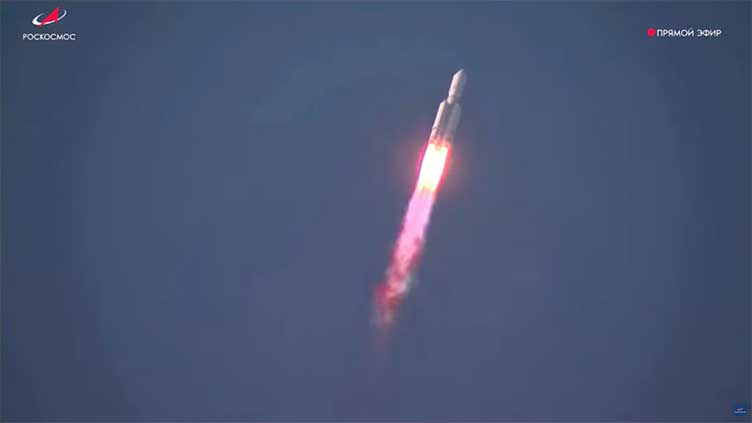Russia launches first Angara-A5 space rocket from Vostochny

World
The launch of the Angara is intended to showcase Russia's post-Soviet space ambitions
MOSCOW (Reuters) – Russia test launched its Angara-A5 rocket from the Vostochny Cosmodrome on Thursday for the first time after technical glitches prompted officials to abort missions at the very last minute for two days in a row.
The launch of the Angara, a new post-Soviet launch vehicle, is intended to showcase Russia's post-Soviet space ambitions and the growing role played by Vostochny which sits in the forests of the Amur region of Russia's Far East.
"There is an engine start, the flight is normal," Russian space agency, Roscosmos, said on its live translation. "All systems are functioning normally."
After minutes, the rocket was travelling at more than 25,000 kilometres per hour and entered orbit.
Roscosmos said Angara-A5 launched with a test payload and had worked normally. The upper section separated and put the test payload into orbit.
On Wednesday the test launch of the space rocket was cancelled due to a malfunction of the engine launch control system.
Russia began the Angara project a few years after the 1991 fall of the Soviet Union as a Russian-made launch vehicle that would ensure access to space even without the Baikonur Cosmodrome, which Russia rents from Kazakhstan.
The first Angara-A5 test flight took place in 2014, and another followed in 2020, both from Plesetsk.
"With this launch, flight design tests of the Amur space rocket complex with Angara heavy-class launch vehicles on Vostochny began," Roscosmos said.
It said that Angara-A5 was much more environmentally friendly than Russia's Proton M as Russia's heavy-lift rocket, which has been in operation since the mid-1960s.


